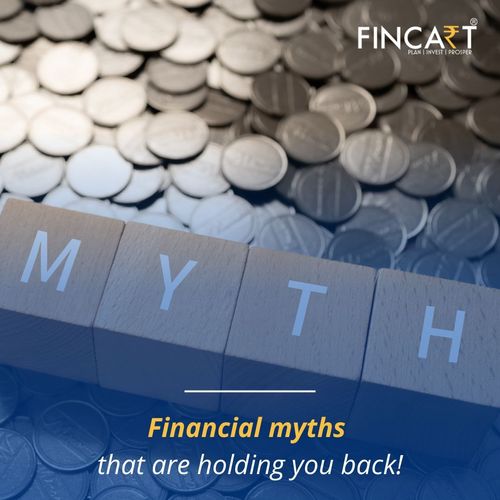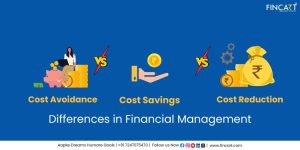Table of Contents
ToggleMoney! Money! Money!
This is one topic that has never gone out of style since it is a major aspect of life.
Now, we often hear that “money can’t buy happiness”. However, it DOES help you get less stressed, lets you give the best education to your child, arrange a beautiful wedding for your child, helps you get your own house & even helps you to plan for your golden days.
A person’s emotions are influenced by money. Happiness. Jealousy. Confusion.
And fear. Do you know what chrometophobia means? It means an overwhelming fear of money. There’s nothing to worry about since you’re not alone.
In many cases, the boogeymen of youth are replaced by new worries. Whether you’re talking about rent, bills, or bank statements, money is involved. There’s no wonder most people avoid personal finance topics.
When it comes to achieving financial goals, it’s important to approach the issue with confidence. By learning how to overcome your fear of money and what financial myths to ignore, you can take control of your money for good!
1. Embrace your fear
Do you know what the scarcity mindset is? There is a scarcity mindset in which we tend to think we have a shortage of something, such as money, time, or food. Our fears of not having enough lead us to subconsciously drive our thoughts and actions from a place of lack. To escape from this limiting belief, we must replace it with an empowering one.
The first step to overcoming fear is becoming aware of it. As soon as you acknowledge the problem, the rewarding work of healing can begin.
2. Analyze the cause of your fear
Find out what is causing your fear. If you know why you feel this way, you can change or eliminate the causes.
Identify the reasons for your fear. What causes your fear of money? Is it a lack of financial knowledge, limited funds, or losing funds?
3. Become fearless by taking action
Do you feel ready to move forward? To take a positive step forward on your financial path, you must overcome your fear with professional guidance/financial advisors.
Find a financial coach or advisor who can help you. Your growth can be impacted positively by working with an expert. A financial expert will identify areas of weakness and create a plan for healing your financial fears. They can assist you in overcoming your money fears so that you’ll come out stronger and healthier.
Also Read: What is Financial Forecasting and How Does It Work
Don’t fall for these financial myths!
There will always be some obstacles around your way. Now, once you have overcome your fear of money, financial myths are something that is just waiting for you around the corner.
1. FD is a safe option for securing money & earning returns
There was a time when FD doubled in 6 years, giving an average of 12% returns. People used to invest for like 10 years. Conservative or Retirees who lived on interest income were in huge favor of Fixed Deposits. With India’s progress, FD rates began to decline. Today, bank FD rates range from 4.5% to 5.5%.
This drastic fall in FD rates has led FD investors to look for better returns.
Given the fact that these FD investors consider the safety of their capital as their prime objective. Hence, a few possible options are mentioned below-
- Debt Mutual Fund:
The return on debt mutual fund has been good until a year back. These funds are invested in fixed-income instruments, be it government bonds, corporate debt securities, or money market instruments.
- Guaranteed Income Plan:
Life Insurance companies have come up with a few guaranteed income plans that guarantee tax-free returns between 5.50%-6.25%. This return comes in the form of an annuity, deferred annuity, and lumpsum maturity payments.
- Dynamic Asset Allocation:
This Mutual Fund scheme has equity+ debt mutual funds. The equity portion is dynamically managed. When the market is high, the equity portion is kept at a low level and when the stock market goes down then the equity exposure is increased. This is mainly formula-driven.
Investing your money in a portfolio of different asset classes aligned with your goals and needs is crucial, instead of just saving money in a savings account.
2. Investing requires a lot of money
No, does it really?
This is a misconception that many people have about investments. It is believed that it requires a large sum of money. We don’t usually understand investments well because they are not an area we are familiar with.
Are you familiar with SIP?
SIP or Systematic Investment Plan is considered an ideal way for investing in mutual funds. With SIP, an investor can invest the amount they want to invest monthly. The deduction of the amount is based on an auto-debit facility. This means that every month on a fixed date the amount of SIP will get deducted.
Do you know what an Rs. 2000 SIP can do in 15 years?
If you plan to save 2000rs every day you might able to save an amount up to 3,60,000. But if invested via SIP, this amount will go up to 12 Lakhs. Amazing isn’t it?
Well, this is the power of compounding that comes in hand with SIP. Make long-term investments with a small amount and bear amazing returns.
Investments can be started with any amount. Investing regularly towards long-term dreams is a part of your overall financial discipline – and it’s better to consider personal financial management as part of your overall outlook on life. SIP is a great tool to start your investment journey with.
3. Investments are risky. You can lose all your money!
It is natural for humans to be afraid of the unknown. This is usually the case when it comes to investments. You have to be smart with your money here!
When you’re in your 20s and your risk appetite is relatively high, for instance, it’s a good idea to focus on higher-return equity investments. When responsibilities come on the shoulder during our 30s one should not take too much risk in his investment portfolio and should have disciplined SIP.
By the 30s the risk appetite of an individual reduces, as now the focus is more on protecting the money rather than growing it at a faster rate. There should be a mix of investments, it should be a little aggressive as well and there should be balance too!
By laying a strong foundation of equities in the initial 10-15 years, we are making sure that there is enough time given to these equities to grow in the coming 40s & 50s so that one can have enough corpus generated to have a risk-free retired life. The 40s is a critical phase of life, by this age, you are at the peak of your career.
You’ll have more earnings and more responsibilities like a child’s higher education and child marriage and it is a crucial decade of your financial life.
Planning things smartly is a path to risk reduction. To reduce the risk of investment, you can invest your money in multiple locations. Diversifying investment areas will save you from market risk – not putting all your eggs in the same basket. Diversification can also kick in at different points in a lifetime.
4. I have a steady income. I Don’t Need Emergency Fund!
It’s good that you have a steady income, but are you fully prepared for emergencies?
Is your emergency cushion stuffed for at least 6-8 months? For people in their 30s, 40s or say 50s, financial stability is more important as they have some financial cushion secured that might be in the form of investments too! They might have some financial plan going on!
In your 20s, you are just starting to take off your career, and your job and financial stability are not secure. Your monthly salary might be within the bracket of 20k-30k. And God forbid, any major expense comes your way, how will you arrange it then?
Building an emergency fund requires patience and most importantly, discipline! To know how much you need to build an emergency fund, multiply your monthly expenses into 6, for 6 months, and 12, for 12 months.
Considering the previous scenario, where your salary is let’s say, 25,000 per month. Out of which, 8,000 is your rent, 4,000 is for utilities, 2,500 for any EMI, Personal expenses is of 5,000 and investment is of 5,500. Now calculating your needs, your necessity expense is 14,500. Considering a minimum 6-month emergency fund, you’ll need 87,000, and for 12 months, Rs. 1,74,000 of the emergency corpus.
This is how to calculate your requirement for Emergency corpus. Your needs, are things that you can’t say no to, and eventually, it’s like a routine payment for each month. Your wants will be your expenses and desires like dining in, purchasing new clothes, gadgets, etc. These are things that you can easily live off for a while. You should focus on zeroing down on your desires and focus on building your fund first.
Also Read: How to Build an Emergency Fund and Why It’s Essential?




